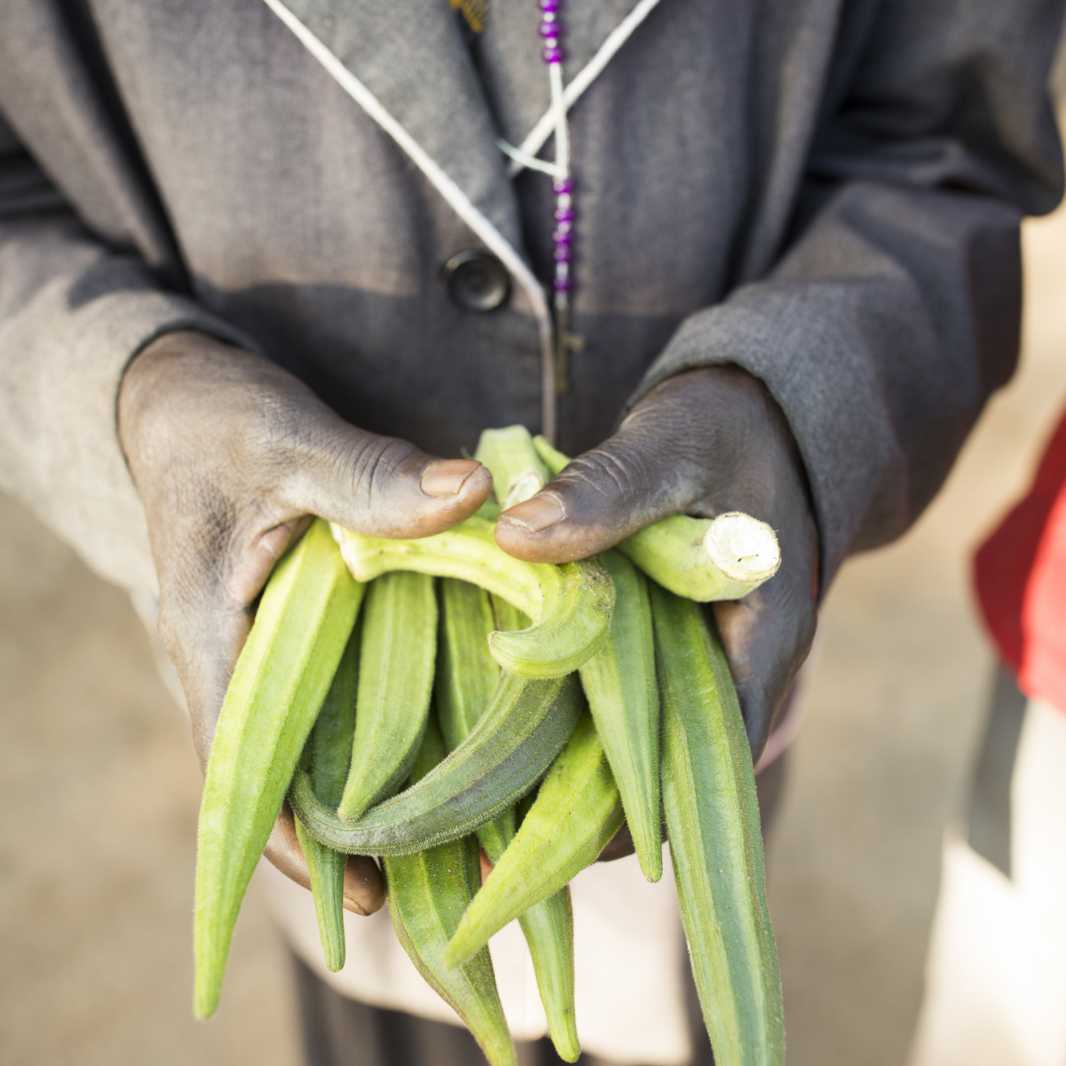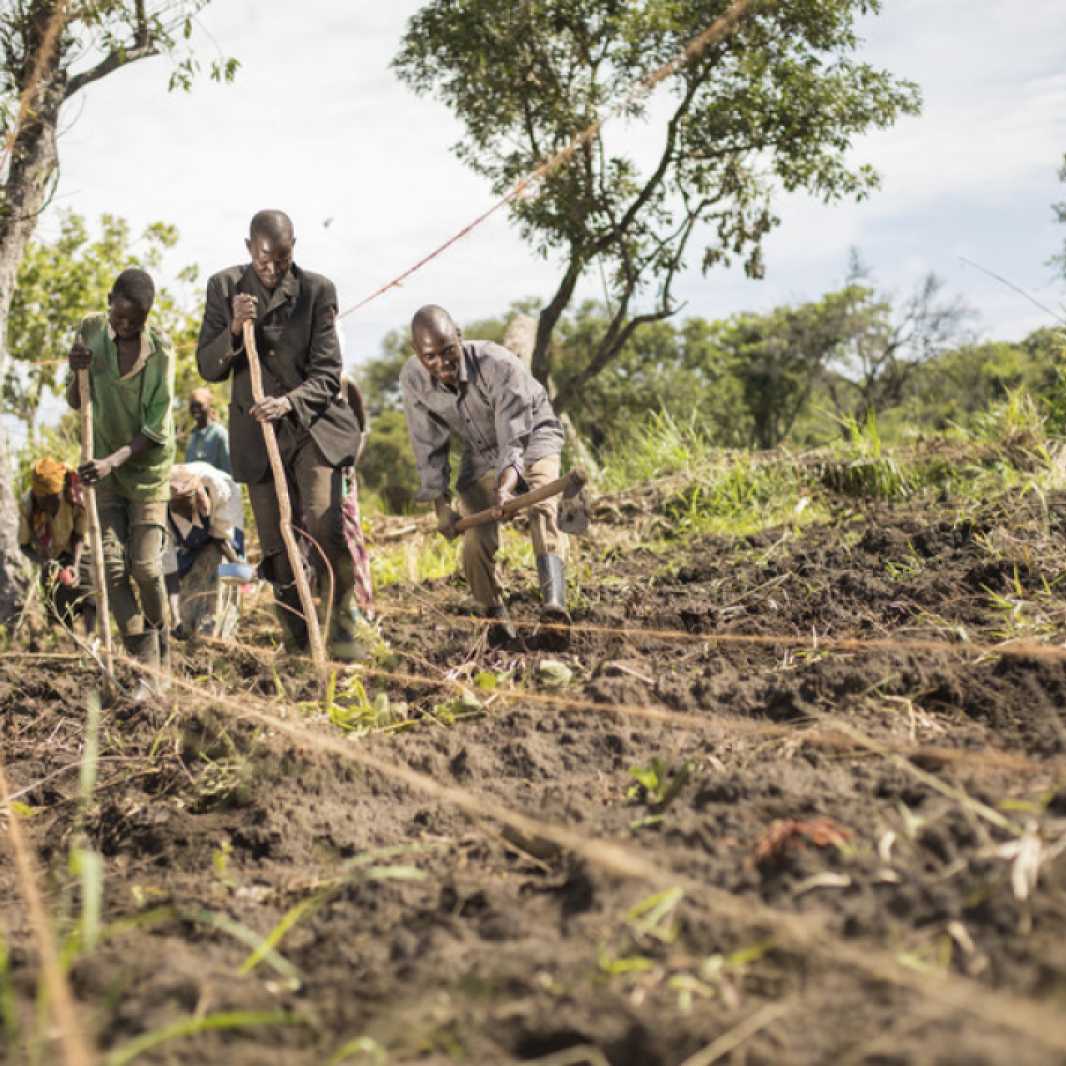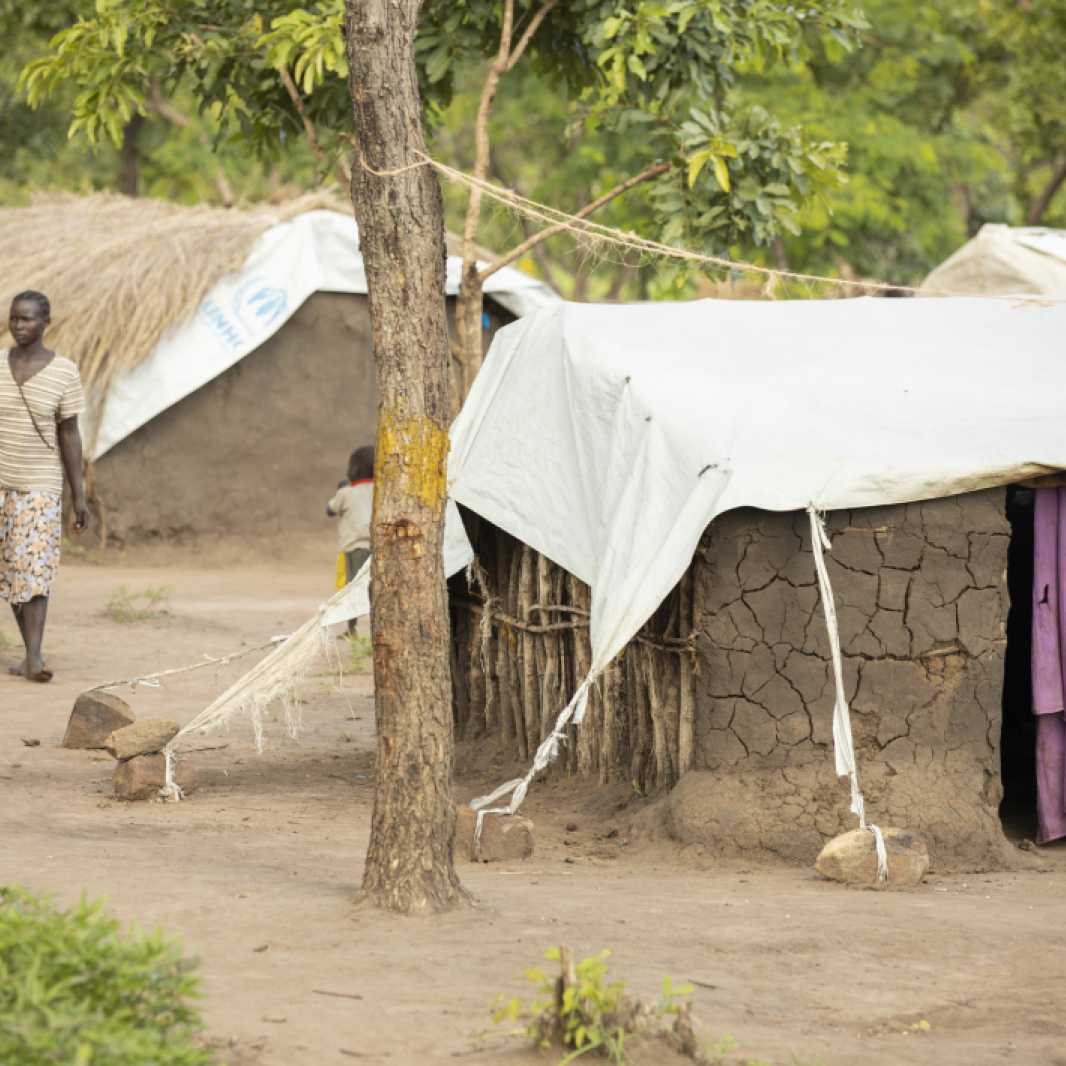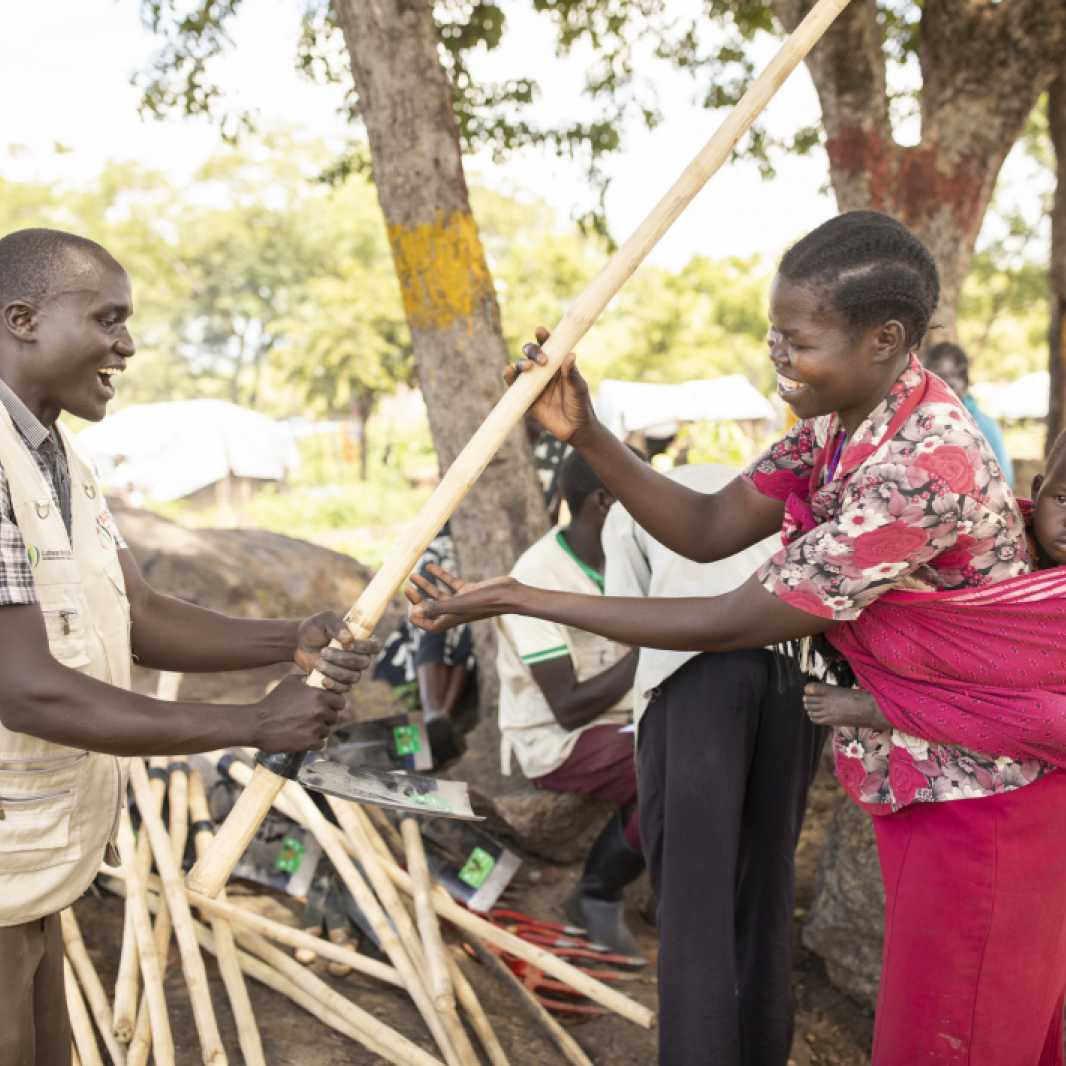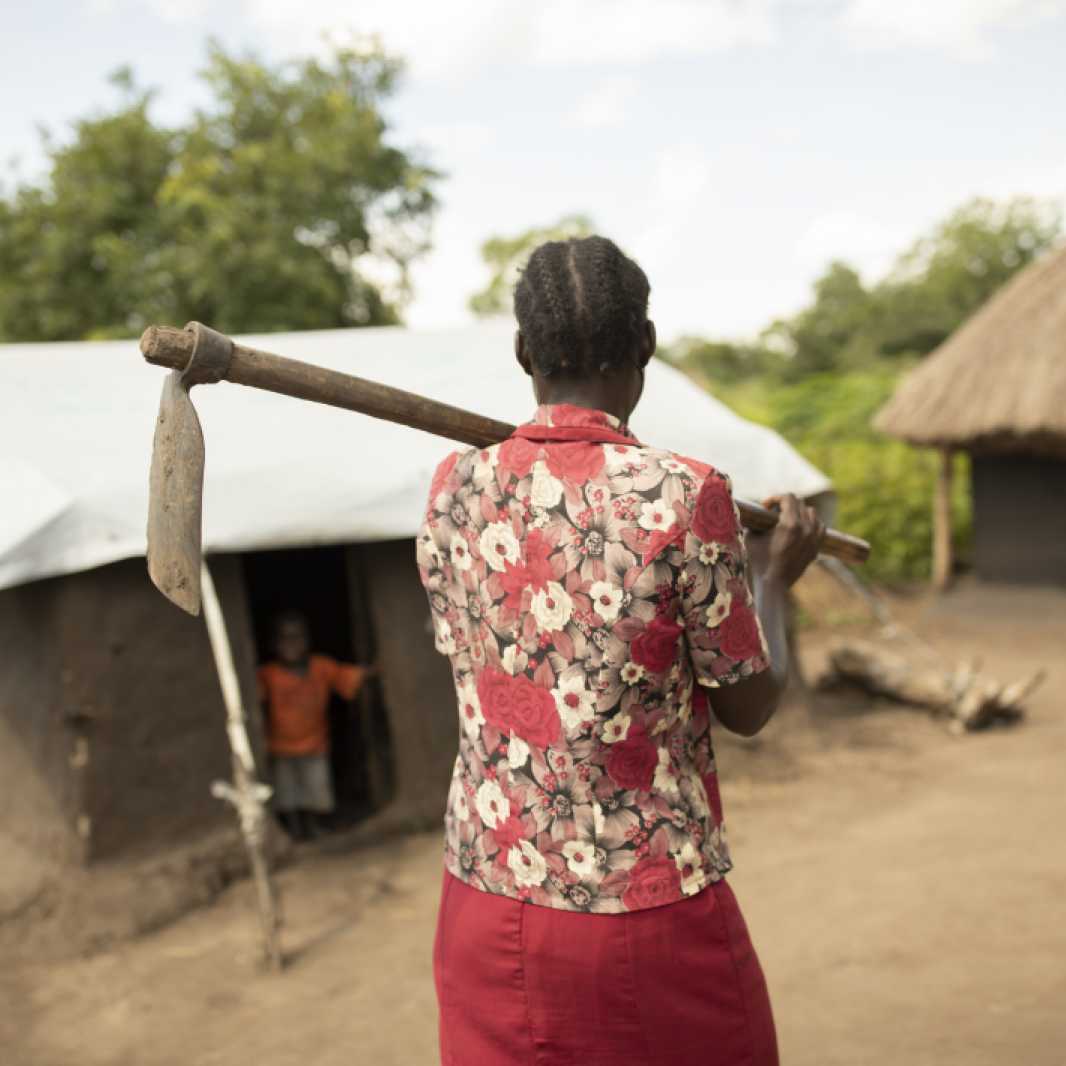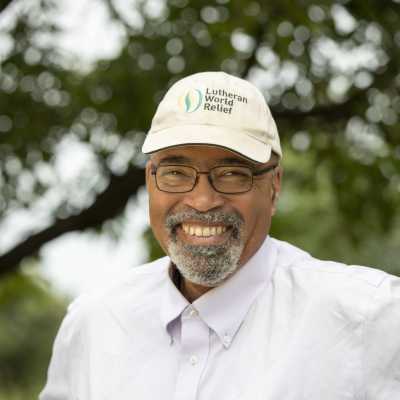At a settlement in northern Uganda, produce from thriving gardens is sold at a community market
Grace Aciro, 30, is selling freshly-harvested vegetables at a street market in the Palabek refugee settlement in northern Uganda.
A customer examines her produce and buys several bags of okra and tomatoes. She makes more than 10,000 Ugandan shillings, a good day.
Grace Aciro sells freshly-harvested vegetables at a street market in the Palabek refugee settlement in northern Uganda.
Grace fled to Uganda from her home in neighboring South Sudan. She is one of more than 2.5 million people that have left South Sudan in search of safe haven from war, violence and widespread food shortages.
Nearly half of the refugees have come south into Uganda. According to the UN Refugee Agency (UNHCR), there were more than 32,000 refugees at Palabek in January 2018. It’s estimated that there are as many as 48,000 refugees today, with 200 more arriving daily.
Grace had no way to earn income when she arrived a year ago with her husband and four children. You’ve changed that reality.
Funded entirely by your generosity, families in Palabek started planting household gardens in January 2018. You provided seeds, tools and the training to help them get the most out of the small plots of land. Now refugee families are growing beans, cowpeas, sweet potatoes, tomatoes, eggplant and okra.
The harvests have been abundant. Families are growing enough to sell for income, which has led to the formation of a bustling street market.
Many families are expected to stay at the settlement for decades, making food production and income critical, permanent needs.
It is tough being a refugee at the Palabek and other refugee settlements in Uganda," says Arthur Nkubito, Lutheran World Relief’s program manager in Uganda. "The settlement camp residents live on handouts from aid organizations. Agricultural projects allow them to produce for themselves and help build self-esteem, resilience and sustainable livelihoods.
Grace comes to the market every other day to sell and barter vegetables after harvesting. Her earnings allow her to purchase household luxuries that others might consider necessities, like soap and medication for her family. And now her four children, ages 12, 7, 5 and 1, are eating healthier diets because Grace is able to trade with other refugees and provide her family with a wider variety of food.
“Life is better here right now than it would be in South Sudan,” she says.
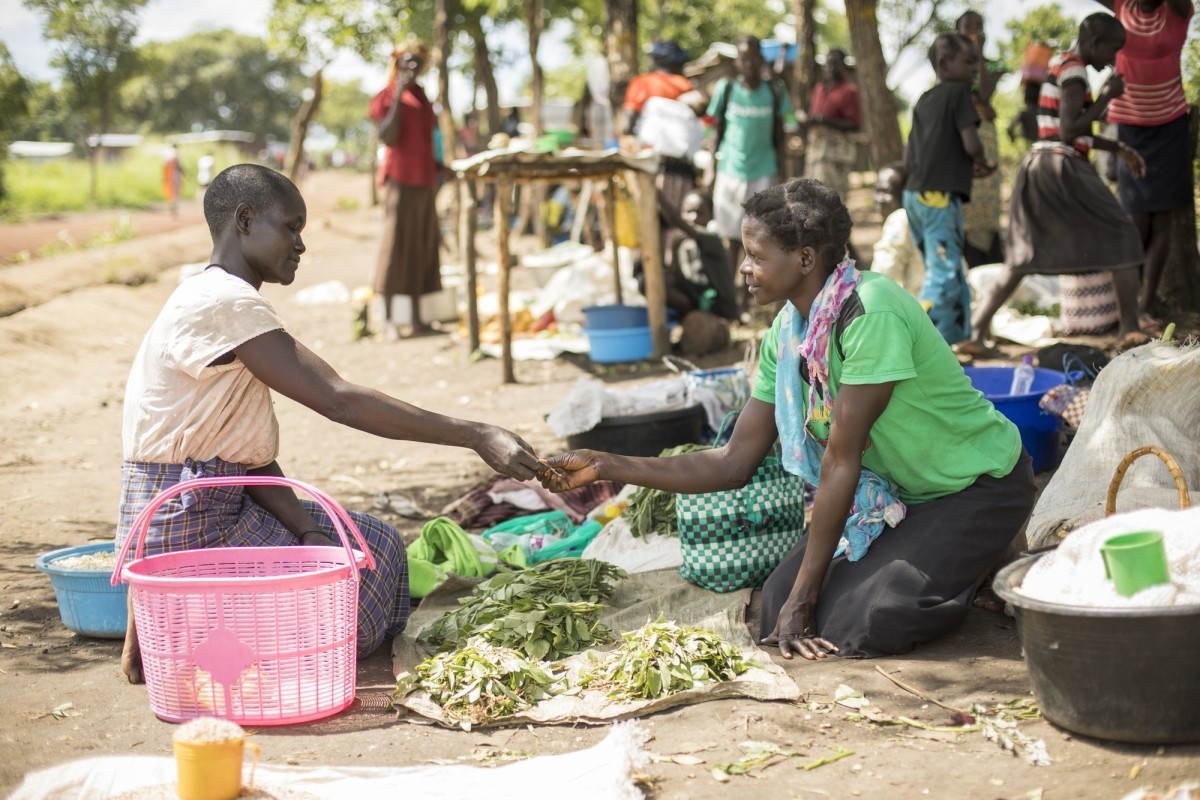
A woman sells vegetables at the street market in Palabek.
Okra grows potential
With high demand for okra both nationally and internationally, farmer groups are forming among the refugees and local farmers to focus on okra production. The local government has asked Lutheran World Relief to further support farmers to produce the vegetable and a Turkish company has already expressed interest in buying up to 500 metric tons of okra.
For Josephine Achola, this is a welcome possibility in a place where last year there were few opportunities for income.
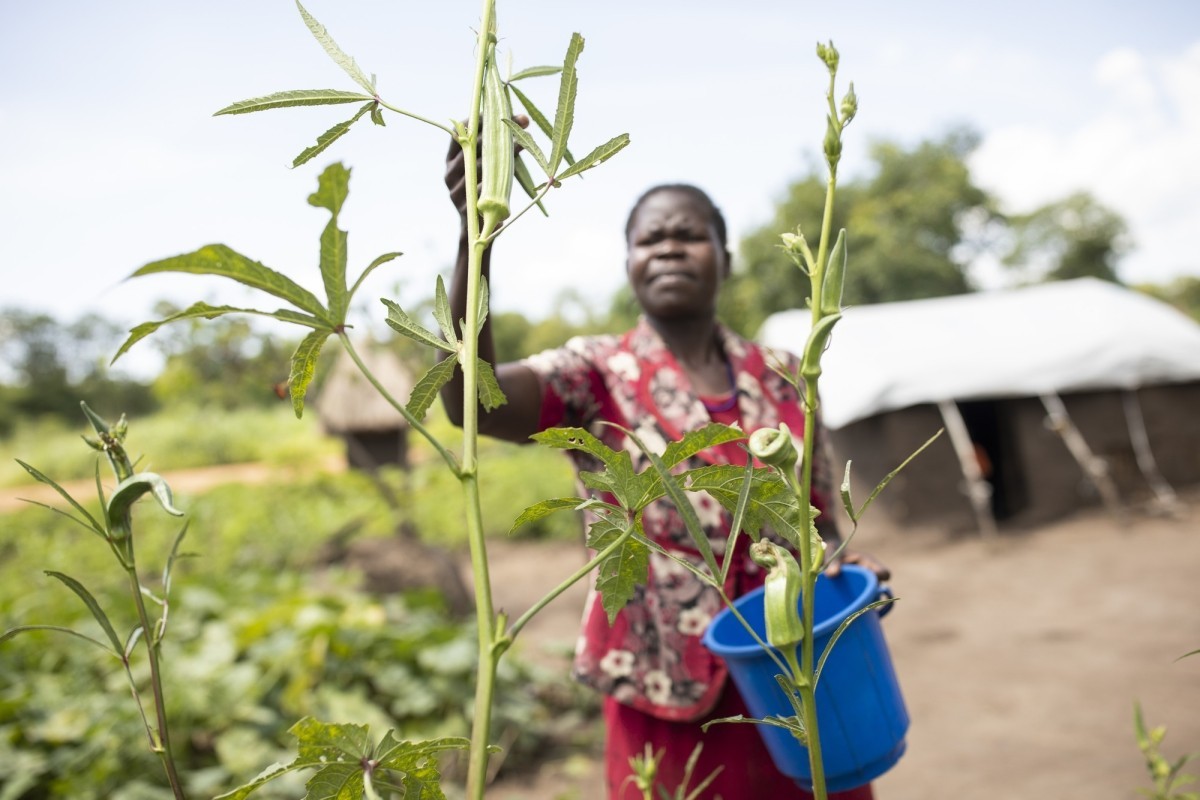
Josephine Achola harvests okra from her household garden.
Josephine, 35, came to Palabek with her three children, ages 12, 8 and 3. They fled their home quickly to escape marauding rebels and were separated from her husband. She has not heard from him. “I don’t know if he is alive or dead,” she says.
Josephine says her future is in Uganda with her family, especially with the potential for steady income because of the okra.
“My life is much better here ... I’d like to stay here forever,” she says.
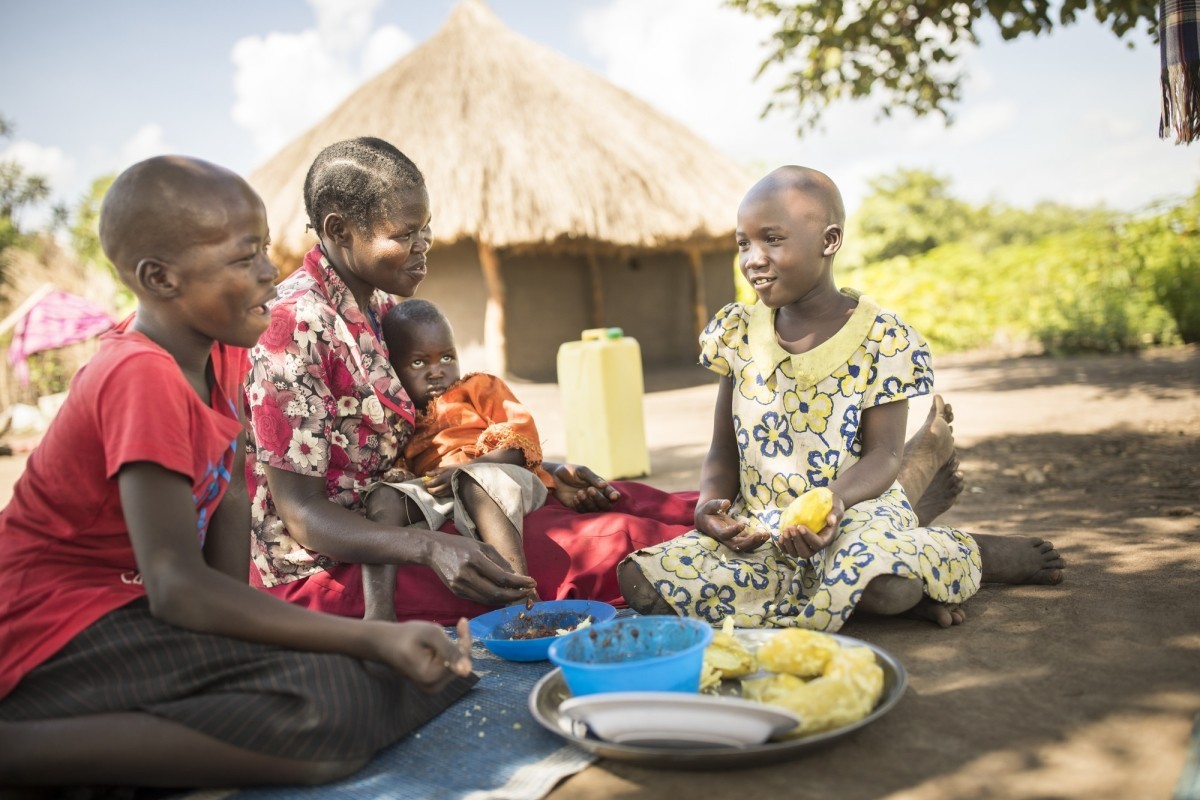
Josephine Achola and her children — Ajara Tracy, 12, Okumu Samuel, 2 and Lakisa Olivia, 8 — eat nutritious sweet potatoes harvested from their garden.
'I came for him'
Paulina Acii is likely in her 80s. She doesn’t remember. She knows she was a young woman with children at the beginning of the first Sudanese Civil War, which began in 1955.
She has been a refugee in Uganda three times because of wars. This time, she said, is her last. She came here because of her 17-year-old grandson Phillip, who lost his parents in the second Sudanese Civil War more than 15 years ago. She feared rebels in South Sudan would kill him or force him to join them.
“I came for him,” she says.
Paulina is using her earnings from okra sales to buy additional food and for clothing and shoes for Phillip.
She says she won't return again to South Sudan. “Phillip will bury me when I die,” she says.
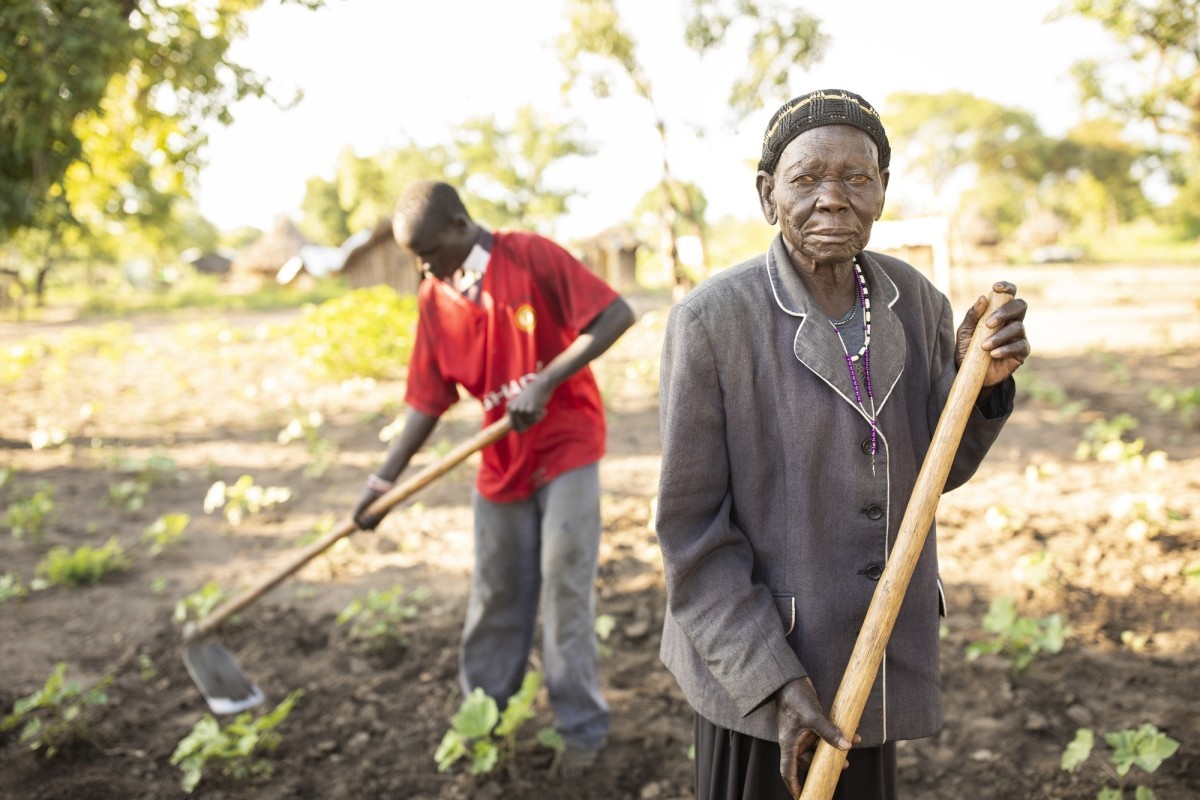
Paulina Acii and her grandson, Phillip, work in their household garden.
You're helping those most in need
As we continue to pray for a peaceful resolution to the long-standing conflict in South Sudan, your support is bringing hope to 1,600 families who have had to flee for their safety. If they return home, you will be responsible for new skills they take with them to build new lives.
Refugees like Paulina are counting on it because “without the project there will be no food, except the rations,” she says.
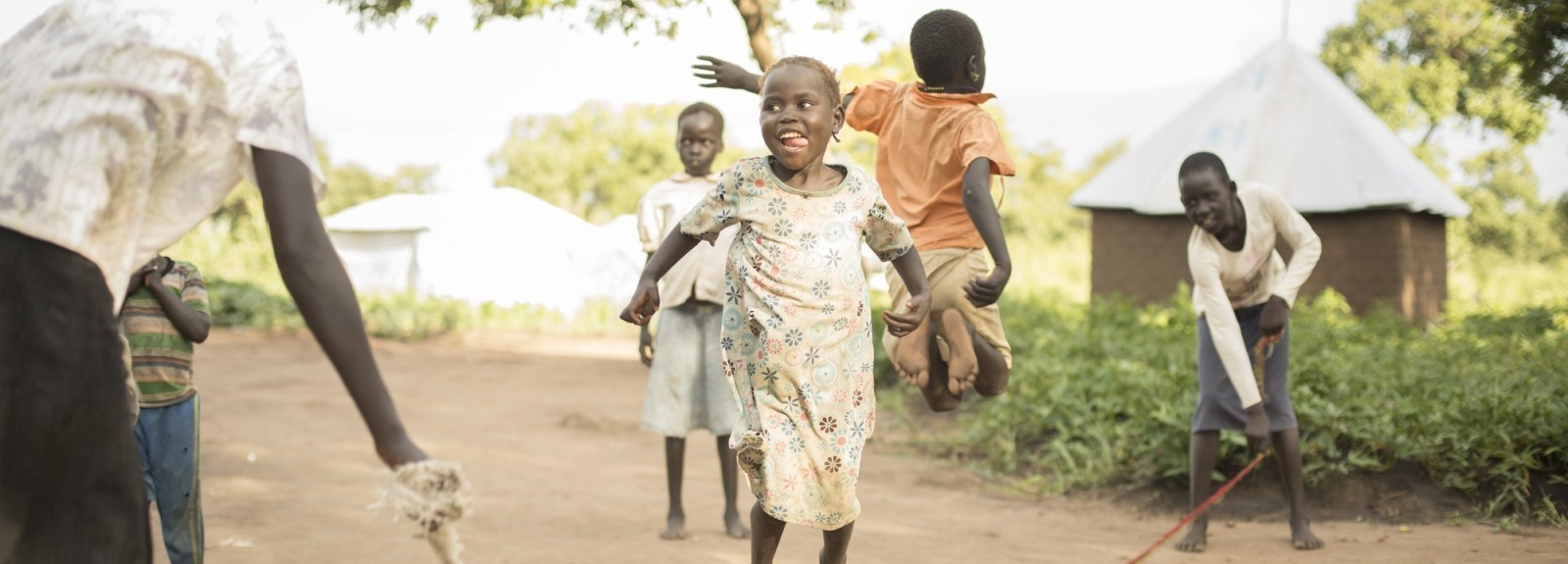
A group of children jump rope together in the Palabek refugee settlement.
Photos by Jake Lyell for Lutheran World Relief.



